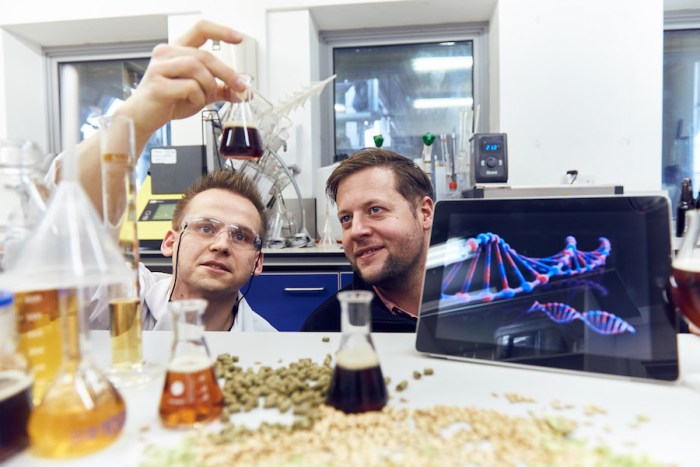There’s to be no more pissing away fuel, as UK scientists find an energy efficient use for urine.
A team of experts, led by Professor IoannisIeropoulos of the Bristol BioEnergy Centre, created a self-sufficient system powered by a wearable energy generator based on microbial fuel cell technology. The experts did it by embedding socks with MFCs that produced enough energy through the wearer’s footsteps to power a wireless transmitter to send a signal to a PC.
Essentially, the gizmo uses the foot as a manual pump to drive wee (the fuel) around the system and, in turn, create a small current.
Ieropoulos explains to Metro why a device like this could be used for all manner of portable and wearable electronics.
Q: What is the Microbial Fuel Cell?
– It is a bio-electrochemical system, that has a capability to convert organic waste directly into useful electricity, and can therefore have a wider impact in terms of resource recovery in every day life. Q: And you’ve created a wearable generator with this?
– Yes, we did it to demonstrate the potential of the technology in emergency situations, where a low-cost piece of kit, which forms part of an outfit or some outdoor gear, can start transmitting a distress signal with the survivor’s coordinates, after the user simply urinates inside the wearable system. Q: How does it work?
– Inside MFCs exist microbial communities, which are electro-active and which ‘excrete’ electrons as part of their natural metabolism, when they are fed with organic waste ‘fuel’ such as urine. These microbes live on the surface of electrode materials and allow the excreted electrons form current. Q: Using urine to make energy sounds a bit unpleasant…
– The use of any form of human by-product (solid excreta, saliva, perspiration) is naturally associated with unpleasantness and discomfort, and urine is no different. Using urine as the carbon-energy source for the microbial communities inside MFCs, implies collecting and handling urine, which is, of course, unpleasant. But this is precisely the work that needs to be done in the lab, in order to develop the technology to the point where the user can still utilize urine to generate useful electricity, but without having to come into contact with their own liquid waste. Q: Will people use your invention?
– Hopefully, MFCs will form part of everyday life, since this is a technology that can offer significant environmental advantages. The breakdown of organic matter nearer to the source means less polluted wastewater will be produced at domestic level, and hence less effort (energy) will be required at municipal wastewater treatment plants. This will allow people to operate more autonomously off-grid, and at the same time help the environment. Q: What are your next steps?
– We are always interested in breaking into new grounds whilst our research is motivated by unsolved problems. Now, we are evaluating the MFC technology both inside and outside of the lab in various field trials, to inform our implementation strategy and this inevitably will create our next challenge. Website:http://iopscience.iop.org/article/10.1088/1748-3190/11/1/016001
By – Dmitry Belyaev, Metro World News
























